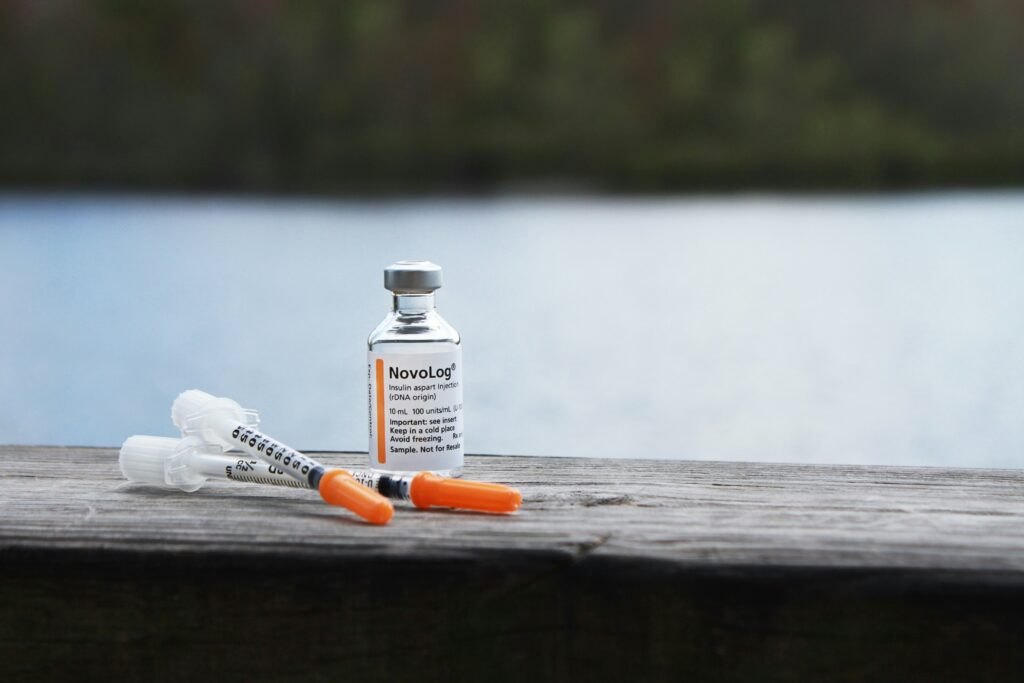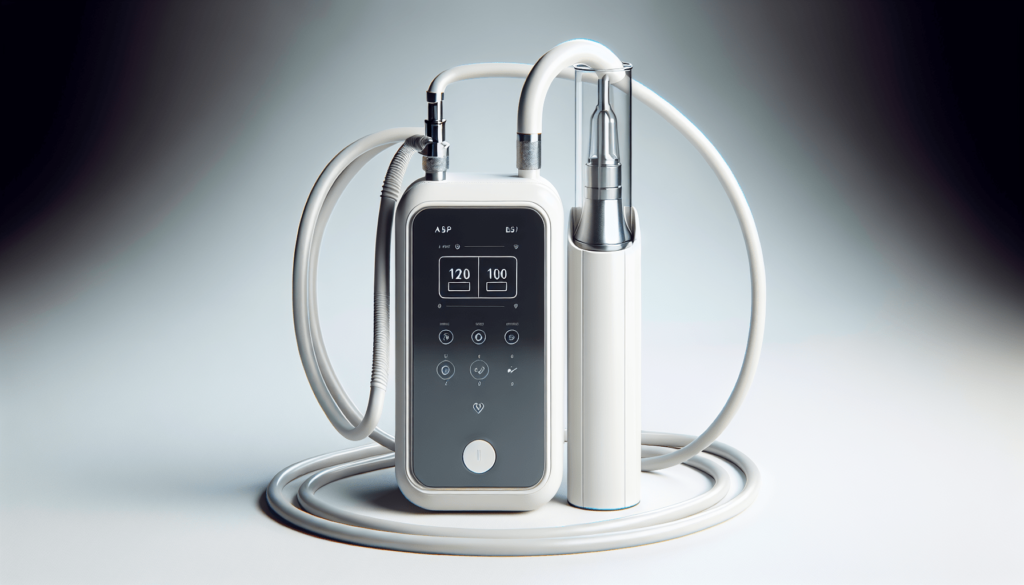Have you ever wondered if you can use an ED pump if you're living with diabetes? It's a valid and important question, given that diabetes can often lead to complications such as erectile dysfunction (ED). Whether you're managing Type 1 or Type 2 diabetes, it's essential to understand how it interacts with potential treatments like ED pumps. Let's get into the details to help you make an informed decision.

Understanding Erectile Dysfunction in Diabetes
Why Diabetes Can Lead to Erectile Dysfunction
When you have diabetes, your body experiences significant changes that can affect various bodily functions, including sexual health. One of the primary reasons for developing erectile dysfunction is due to the impaired blood flow caused by high blood sugar levels. Over time, high glucose levels can damage both the nerves and blood vessels in your body, which are crucial for sexual performance.
The Prevalence of ED in Diabetic Men
Statistically speaking, men with diabetes are two to three times more likely to develop erectile dysfunction compared to those without. The onset can also be earlier. It's not just an inconvenient condition; it can greatly impact emotional well-being and quality of life.
What is an ED Pump?
Basics of an ED Pump
An ED pump, also known as a vacuum erection device (VED), is a non-invasive treatment option designed to help achieve and maintain an erection. The device typically consists of a cylindrical tube, a pump, and a constriction ring. The concept is straightforward: the pump creates a vacuum around the penis, drawing blood into the corpora cavernosa, which are the sponge-like regions of erectile tissue. Once an erection is achieved, the constriction ring is placed at the base of the penis to maintain the erection.
Types of ED Pumps
There are generally two types of ED pumps:
- Manual Pumps: These require you to manually operate the pump to create the vacuum.
- Battery-Operated Pumps: These pumps automatically create the vacuum with the push of a button.
| Type | Description |
|---|---|
| Manual Pumps | Manually operated, often more affordable. |
| Battery-Operated Pumps | More convenient but usually more expensive. |
Can You Use an ED Pump if You Have Diabetes?
Safety Considerations
The good news is that most men with diabetes can safely use an ED pump. However, there are some factors to keep in mind. Given that diabetes can cause nerve and blood vessel damage, you might need to be cautious. For example, if you have neuropathy (nerve damage), you may not have the same level of sensation in your genital area, making it hard to gauge the vacuum’s intensity.
Pros of Using an ED Pump:
- Non-invasive
- No medication interaction
- Affordable long-term
Cons of Using an ED Pump:
- Possible discomfort
- Not spontaneous
- Requires some practice
Precautions and Recommendations
Before you start using an ED pump, consult your healthcare provider. This is crucial for ensuring the method is safe for you, especially if you have diabetes complications like neuropathy or poor circulation. Follow these recommendations:
- Start Slowly: Begin with shorter sessions to gauge your comfort and effectiveness.
- Check for Sensation Loss: Make sure you can feel the pressure changes to avoid injuries.
- Monitor Blood Sugar: Sometimes, sexual activity can alter blood sugar levels, so keep an eye on your readings.
How to Use an ED Pump Effectively
Step-by-Step Guide
- Preparation: Trim any excess pubic hair to ensure a good seal with the pump.
- Lubrication: Apply a water-based lubricant to the base of the penis and the opening of the cylinder.
- Insertion: Place your penis in the cylinder.
- Creating a Vacuum: Use the pump to create a vacuum and draw blood into the penis.
- Applying the Constriction Ring: Once erect, slide the constriction ring onto the base of your penis.
- Duration: Maintain the erection for the desired duration, but don't exceed 30 minutes to avoid potential damage.
- Releasing the Vacuum: Carefully release the vacuum and remove the cylinder.
- Aftercare: Clean the device thoroughly after each use to maintain hygiene.
Tips for Better Results
- Consistency: Use the device regularly to get accustomed to it.
- Relaxation: Try to relax before using the pump. Anxiety can make it harder to achieve an erection.
- Communication: Talk to your partner about your method. Understanding and support can make the experience more positive.

Alternative Treatments for ED in Diabetes
Oral Medications
Medications like sildenafil (Viagra), tadalafil (Cialis), and vardenafil (Levitra) are commonly prescribed for ED. These drugs enhance the effects of nitric oxide, which relaxes muscles in the penis and increases blood flow. However, they may interact with diabetes medications, so always consult your doctor.
Injectable Medications
For those who do not respond well to oral medications, injectable options are available. Alprostadil is a common injectable drug that directly widens blood vessels. As effective as it can be, the idea of injecting medication can be daunting for some.
Lifestyle Changes
A healthy lifestyle can significantly improve ED symptoms. Focus on:
- Balanced Diet: Aim for a diet low in sugar and rich in fibers.
- Regular Exercise: Exercise improves blood circulation and overall health.
- Stress Management: Methods like yoga and mindfulness can lower stress levels and improve sexual function.
Psychological Counseling
Sometimes, erectile dysfunction has psychological roots. Psychological counseling or therapy can be extremely beneficial in such cases. Addressing stress, anxiety, or depression can have a positive impact on your sexual health.
Comparing ED Pumps with Other Treatments
To make an informed decision, it's helpful to compare ED pumps with other treatment options.
| Treatment | Pros | Cons |
|---|---|---|
| ED Pumps | Non-invasive, no medication interactions | Requires practice, not spontaneous |
| Oral Medications | High success rate, easy to use | Possible interactions with other medications, side effects |
| Injectable Medications | Direct and effective | Invasive, requires careful handling |
| Lifestyle Changes | Natural, improves overall health | Slow results, requires discipline |
| Psychological Counseling | Addresses root causes | Time-consuming, may need multiple sessions |

Real-Life Stories and Experiences
Reading about others' experiences can offer insight and comfort. Here are a couple of stories from men who navigated ED and diabetes.
John's Journey
John, a 55-year-old man with Type 2 diabetes, had struggled with ED for years. After trying oral medications without much success due to side effects, he decided to try an ED pump. John found it took a bit of time to get used to the process, but eventually, he was able to maintain erections more reliably. His advice: “Be patient and give yourself time to adapt. It’s worth it.”
Michael’s Experience
Michael, a 48-year-old with Type 1 diabetes, was hesitant about using an ED pump. He worried it might be uncomfortable or ineffective. With the support of his healthcare provider, he gave it a try and was pleasantly surprised. “Initially, it felt strange, but it got better with practice. I can now enjoy a fulfilling sex life.”
Conclusion
Navigating erectile dysfunction while managing diabetes can be challenging, but it's important to know that various effective treatments are available. ED pumps can be a viable and safe option for many men with diabetes, provided you take some necessary precautions and consult your healthcare provider. Don't hesitate to explore alternative treatments and lifestyle changes to find the solution that works best for you. Above all, communicate openly with your partner and seek professional advice for the best outcomes.
By taking a proactive approach, you can manage both your diabetes and erectile dysfunction, ultimately leading to a happier, more fulfilling life.


